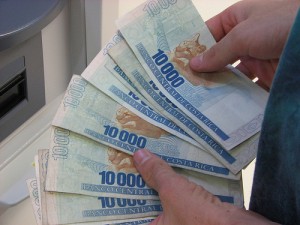https://blogs.ubc.ca/florazhu/
Flora Zhu’s blog, “Taking from the rich to assist the poor” questions the fairness of taxing the “hard working” top class. Flora states that actually 70% of the 1% actually hold top academic positions, which reflect their diligence and dedication. The debate between trickle down economics and social equality has been going on forever and will probably go on forever. However, there is a yet more interesting approach to the question of poverty, fairness, etc.
New Yorker writer, John Cassidy asks, “how poor is poor?” This (very interesting) article article can be found here.
The article is titled “Relatively Deprived”. Cassidy argues that poverty is not an isolated condition, but rather a result of comparing oneself to others around you. It’s the fact that we compete with others that we feel poor, or not poor. Therefore, poverty standards should be redefined into taking into consideration psychological factors of comparison.
Now, that been said, what I’m trying to say is quite simple. We have endlessly discuss whether to help the poor out, or leave it to the rule of the jungle… But, why not redefine poverty? Is it not more affordable to encourage people not to compare themselves to others and thus encourage them to redefine themselves out of the poverty line? This would be revolutionary to poverty standards, economic measures, and international relations.


